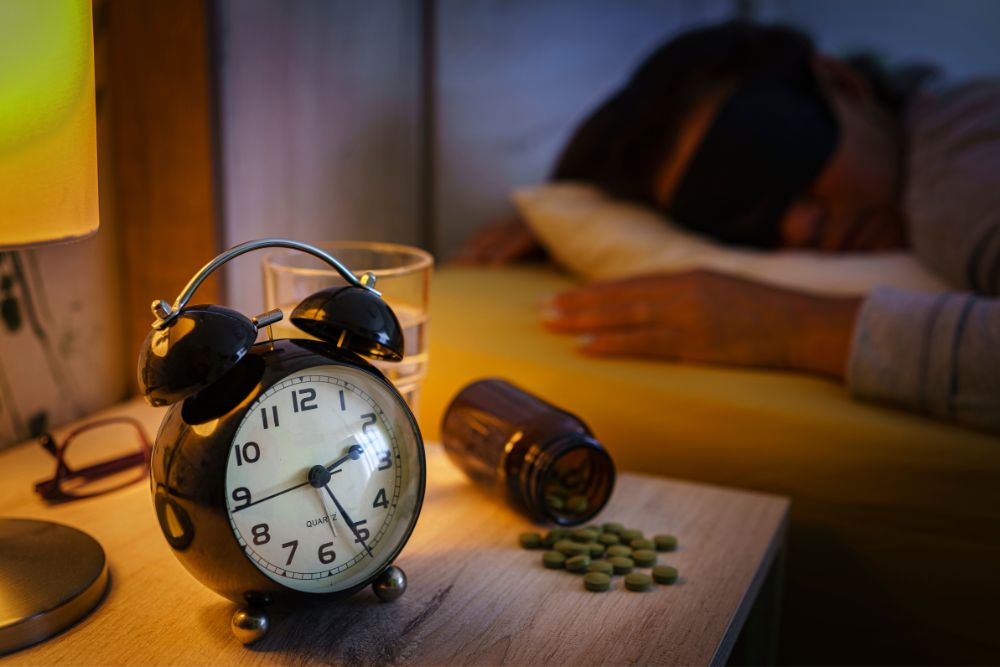Medications for Sleep Disorders - DRHC Dubai Psychiatry Clinic
Medications for sleep disorders are typically considered when other non-pharmacological approaches, such as sleep hygiene and CBT for insomnia, have not provided sufficient relief. These medications can be effective in the short term, but they also come with potential side effects and the risk of dependence. It is important to consider various aspects when taking any medication for sleep difficulties
Choosing the Right Medication:
- Type of Sleep Difficulty: Is there difficulty in the onset of sleep or maintaining sleep throughout the night?
- Acute or Chronic: Is the sleep difficulty acute in onset or is it a long-term chronic problem?
- Substance Use: Is there any history of substance use or abuse in the past or at present? Is there a risk of dependence on sleep medicines?
- Comorbid Health Conditions: Are there any underlying physical health conditions complicating sleep problems (e.g., chronic pain)?
- Other medications: Are there any other medicines prescribed that could interfere with the action of sleep medicines or lead to any potential side effects?
Types of Sleeping Medicines:
Benzodiazepines:
These are a class of sedative medications that include drugs like diazepam (Valium), alprazolam (Xanax), clonazepam (Rivotril), or lorazepam (Ativan). They can help induce sleep but are generally prescribed only for short-term use due to the risk of tolerance, dependence, and withdrawal symptoms.
Non-Benzodiazepine Hypnotics (Z-drugs):
These medications, such as zolpidem (Stilnoct), eszopiclone (Lunesta), and zaleplon (Sonata), are similar to benzodiazepines but are considered to have a lower risk of dependence. They are most useful in improving sleep onset and do not cause any daytime drowsiness. They are also prescribed for short-term use.
Antidepressants:
Some antidepressants, like trazodone, mirtazapine, or doxepin, are sometimes prescribed off-label for their sedative effects, particularly for people who have insomnia along with depression or anxiety.
Sedating Antipsychotics:
In some cases, antipsychotic medications like quetiapine (Seroquel) or olanzapine (Zyprexa) are used off-label at low doses for their sedative effects.
Antihistamines:
Over-the-counter antihistamines, such as diphenhydramine and doxylamine, can cause drowsiness and are occasionally used for short-term insomnia relief. These are frequently purchased by patients as a first resort, as they are easily available. However, they do not provide adequate relief and may not be suitable for long-term use due to potential side effects.
Melatonin Agonists:
Drugs like ramelteon (Rozerem) work by affecting the body's melatonin receptors, helping to regulate the sleep-wake cycle. They are typically used for people with circadian rhythm sleep disorders.
Orexin receptor antagonists:
Medications like suvorexant target the orexin system in the brain, which plays a role in regulating wakefulness. They are relatively newer options for treating insomnia with good efficacy; however, they are not easily available.
Usage and Dosage:
It's crucial to use sleep medications as prescribed by a qualified healthcare professional. Dosage and timing of medicines are essential considerations. It is extremely important to strictly follow the instructions given for using sleeping pills.
Potential Side Effects:
Sleeping medicines are known to have side effects. Common side effects include dizziness, drowsiness, daytime sleepiness, and impaired coordination. Do not drive or operate heavy machinery after taking a sleeping medicine, as it can have serious consequences. Do not consume alcohol or any other substance or medication when prescribed sleeping medicines.
It's essential to use these medications under the guidance of a healthcare professional, as they should be prescribed based on an individual's specific condition and needs. Long-term use of many of these medications is generally discouraged due to potential risks, including tolerance, dependence, and side effects. The goal is to use medication as a temporary solution while addressing the underlying causes of insomnia through other therapies and lifestyle changes.
.png?width=281&height=59&name=bookanappointment%20(1).png)
If you are experiencing any signs and symptoms of a Medications for Sleep Disorders, please don't hesitate to contact our best psychiatrist in Dubai at the Dr Rami Hamed Center, Call +97142798200 to Schedule Your Appointment Today. We have the best psychiatry doctor, and our psychiatry clinic is situated in Dubai Healthcare City.




.png?width=281&height=59&name=bookanappointment%20(1).png)
.png?width=1080&height=1080&name=DR%20KIRTI%20(1).png)




